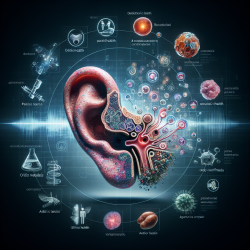As a practitioner working with autistic individuals, it is crucial to stay informed about the unique health challenges they face. The recent study titled "Health conditions and service use of autistic women and men: A retrospective population-based case–control study" provides valuable insights into the health conditions and service use patterns of autistic adults. This blog post will explore the key findings of this study and offer guidance on how practitioners can implement these insights to improve their practice.
The Unique Health Challenges of Autistic Adults
The study highlights that autistic adults are more likely to experience a wide range of physical and mental health conditions compared to adults without developmental disabilities. Notably, psychiatric conditions are more prevalent among autistic individuals than those with other developmental disabilities. This underscores the critical need for mental health support tailored to the needs of autistic adults.
- Physical Health Conditions: Autistic adults are more likely to have epilepsy, diabetes, hypertension, chronic obstructive pulmonary disease (COPD), asthma, cancer, and stroke.
- Mental Health Conditions: High rates of psychotic and non-psychotic disorders are prevalent among autistic individuals.
Differential Service Use Patterns
The study also reveals that autistic adults have higher rates of psychiatric service use compared to other groups. This includes increased visits to psychiatrists and hospitalizations for psychiatric reasons. Understanding these patterns is essential for practitioners aiming to provide effective care.
- Emergency Department Visits: Autistic women are more likely to visit the emergency department for any reason compared to men.
- Outpatient Visits: Both autistic men and women show increased use of outpatient services, particularly psychiatric services.
The Importance of Gender-Specific Approaches
The study highlights significant gender differences in health conditions and service use among autistic adults. For instance, autistic women have higher rates of non-psychotic disorders compared to men, while men have higher rates of psychotic disorders. These findings suggest that gender-specific approaches may be necessary to address the unique needs of each group effectively.
Implementing Research Insights in Practice
Practitioners can take several steps to implement the insights from this research into their practice:
- Mental Health Focus: Prioritize mental health support for autistic individuals by incorporating regular screenings for psychiatric conditions into routine care.
- Differentiated Care Plans: Develop care plans that consider gender-specific health risks and service needs.
- Cultural Competence: Enhance cultural competence by understanding the intersectionality of autism with other social categories such as gender identity and race.
- Collaborative Care Models: Implement collaborative care models that integrate mental and physical health services for comprehensive support.
The Need for Continued Research
This study emphasizes the importance of ongoing research to better understand the health needs of autistic adults. Practitioners are encouraged to stay informed about new findings and adapt their practices accordingly. By doing so, they can contribute to improving health outcomes for this population.
If you're interested in delving deeper into this topic, consider accessing the full research paper titled "Health conditions and service use of autistic women and men: A retrospective population-based case–control study".










